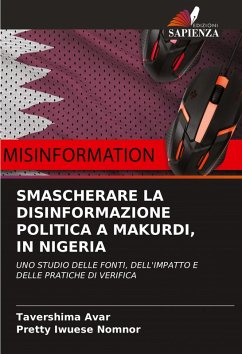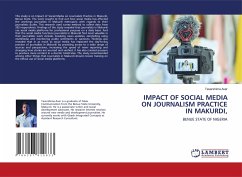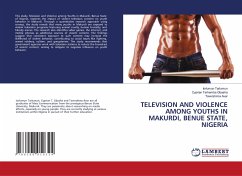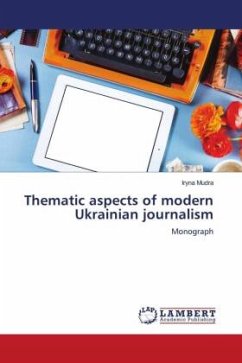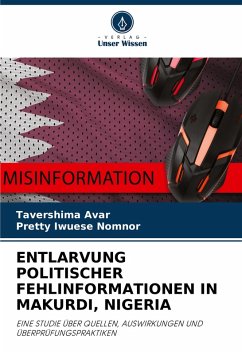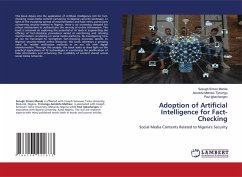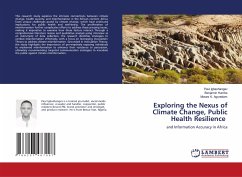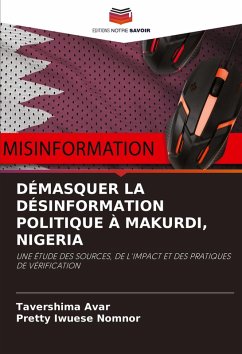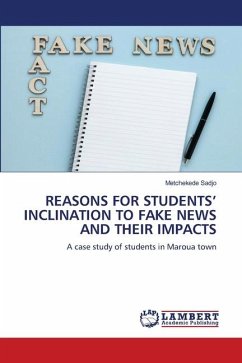
UNMASKING POLITICAL MISINFORMATION IN MAKURDI, NIGERIA
A STUDY OF SOURCES, IMPACT, AND VERIFICATION PRACTICES
Versandkostenfrei!
Versandfertig in 6-10 Tagen
29,99 €
inkl. MwSt.

PAYBACK Punkte
15 °P sammeln!
This study sought to examine how residents of Makurdi encounter, perceive, and respond to political misinformation. The study was grounded in Uses and Gratifications Theory and Cognitive Dissonance Theory. Survey method was used to collect data from 384 respondents. The research specifically sought to; identify the main channels through which political misinformation spreads, assess the frequency and conditions under which residents encounter it, explore the various responses individuals have when confronted with misinformation, and examine the methods used by residents to verify the accuracy ...
This study sought to examine how residents of Makurdi encounter, perceive, and respond to political misinformation. The study was grounded in Uses and Gratifications Theory and Cognitive Dissonance Theory. Survey method was used to collect data from 384 respondents. The research specifically sought to; identify the main channels through which political misinformation spreads, assess the frequency and conditions under which residents encounter it, explore the various responses individuals have when confronted with misinformation, and examine the methods used by residents to verify the accuracy of political information they receive. Major findings revealed that; social media is the dominant source of political information, Misinformation is most frequently encountered during political campaigns, Respondents' reactions varied: 51.8% tried to verify information, while others ignored or shared it without verification. The study recommended among other things that the Ministry of Education, with local schools and universities, should integrate media literacy programs into curricula, to equip students with skills to evaluate political information critically.





